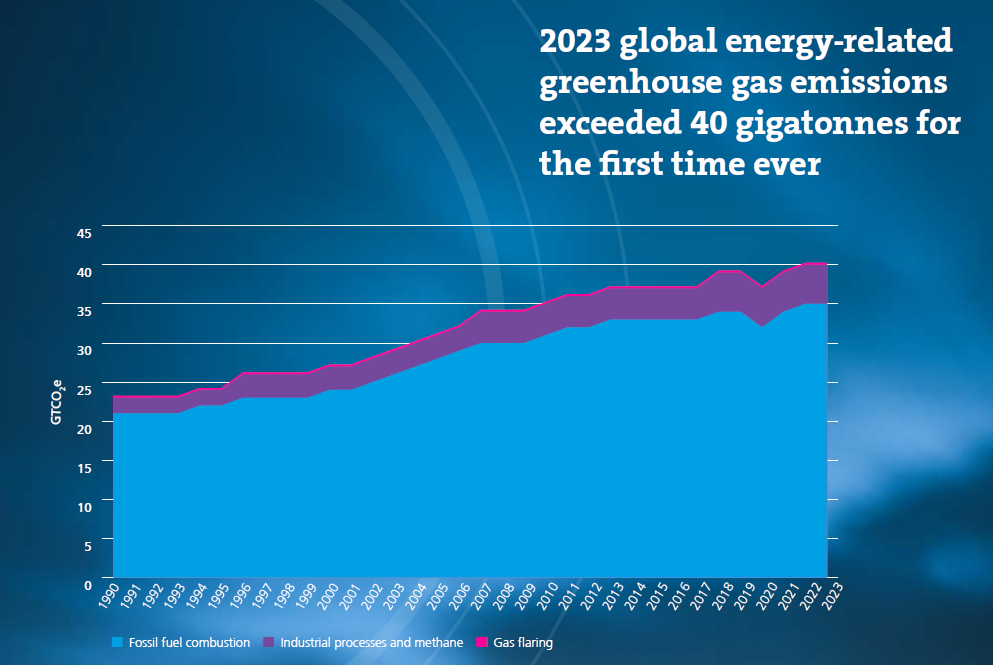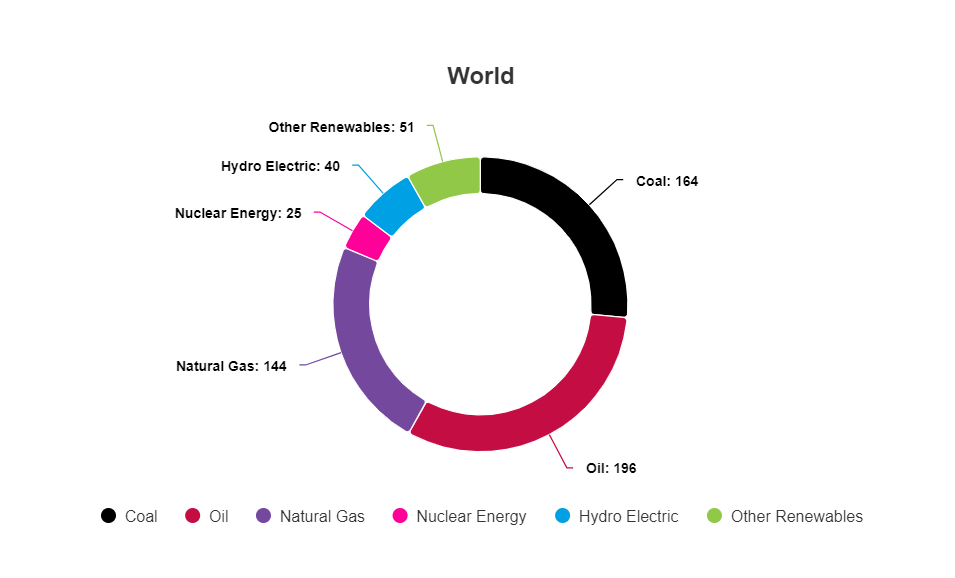
In 2023, total fossil fuel consumption reached a record high worldwide, the Energy Institute (EI) reported yesterday.
Published in the 73rd annual Statistical Review of World Energy report by the EI (along with co-authors KPMG and Kearney), the release presented the first full global energy data for 2023.
It stated that 2023 was a year of several historic energy consumption records – not all of them positive.
Historic emissions and energy usage
Perhaps most startlingly, the report revealed that global emissions from energy increased by 2% in 2023, exceeding 40 gigatonnes of CO2 for the first time in history.

Fossil fuel usage was up to a new all-time high, driven by a 2% increase in oil usage, and 1.6% increase in coal usage.
In addition to this, they also noted that primary energy consumption overall was at an all-time high worldwide, up 2% on the previous year to 620 Exajoules (EJ).
Of especial note was the global amount of oil consumed, which exceeded 100 million barrels for first time ever.
Renewables rise to new highs
However, renewable energy sources also experienced a record year in 2023.
Renewable generation, excluding hydro, was up 13% to a historic high of 4,748 TWh (terawatt hours – a unit of energy measurement representing one trillion watt hours).
This growth was driven almost entirely by wind and solar, and accounted for 74% of all net additional electricity generated.
As a share of primary energy use, renewables (excluding hydro) were at 8%, or 15% including hydro.

India and China deliver new ‘firsts’
There were a couple of countries singled out in the report as being significant contributors to the global energy footprint.
In India, fossil fuel consumption was up 8% in 2023, as part of the country’s growing industrialisation and clout as a growing world power.
In fact, more coal was used in India during 2023 than in Europe and North America combined – for the first time in history.
Meanwhile, fellow Asian powerhouse China also received a mention. Fossil fuel usage in the country climbed to a new post-pandemic high by increasing 6%.
China also overtook Europe on an energy-per-capita basis for the first time.
However, the nation also added 55% of all renewable generation additions in 2023 – more than the rest of the world combined. According to the report, fossil fuels as a proportion of the country’s total energy use have been in decline for more than a decade, since 2011.
A world of change
Some of the most interesting insights from the report delved into how the planet, and its nations, have changed in the space of the past year.
EI President Juliet Davenport commented that:
With global temperature increases averaging close to 1.5°C, 2023 was the warmest year since records began, and the increasingly severe impacts of climate change were felt across all continents.”
The balance of power – quite literally – has been shifting too.
“In Europe fossil fuels fell to below 70% of primary energy for the first time since the Industrial Revolution,” the report noted. This was partially driven by demand reduction, thanks to fallout from the ongoing Russian invasion of Ukraine, and also renewable energy growth.
US consumption of fossil fuels also fell, down to 80% of total primary energy consumed.
Fossil fuel usage ‘virtually unchanged’
Still, much remains to be done. Simon Virley CB FEI, Vice Chair and Head of Energy and Natural Resources, KPMG in the UK said:
In a year where we have seen the contribution of renewables reaching a new record high, ever-increasing global energy demand means the share coming from fossil fuels has remained virtually unchanged at just over 80% for yet another year.”
The post Fossil fuels consumption hit record highs in 2023, Energy Institute reveals appeared first on Invezz









